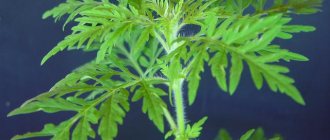A document confirming the safety of products of plant origin is a phytosanitary certificate. This is an international permit confirming the compliance of the declared products with accepted phytosanitary standards.
Its necessity is due to the potential danger of the spread or transfer of pathogens between countries. The procedure for preparing this documentation is regulated by Federal Law of July 21, 2014 N 206-FZ “On Plant Quarantine”.
List of controlled products
The list of regulated goods is established in the CCC Decision of June 18, 2010 No. 318. The following are subject to verification:
- cut flowers, buds;
- Christmas trees;
- seedlings;
- roots, cuttings, seeds and bulbs of plants;
- legumes;
- vegetables (potatoes, cabbage, carrots, cucumbers, tomatoes);
- fruits (oranges, grapes, apricots, apples, pears);
- nuts (cashews, walnuts, Brazil);
- rye, wheat, oats, barley;
- flour;
- timber, lumber.
Benefits of purchasing a phytosanitary certificate
The main benefits of certification include:
- confidence in the safety of products for humans and the environment;
- compliance with legal requirements and loyalty of supervisory authorities;
- the opportunity to expand sales markets and go international;
- compliance with delivery deadlines and building a reputation as a responsible manufacturer (partner);
- avoiding problems at customs and timely crossing of the border by the carrier of the exported cargo.
What information should I provide?
The exporter must prepare important information before sending the cargo and provide it to our center.
List of required information:
- name and quantity of goods;
- information about the destination - name and location of the importer;
- date of export of products,
- list of border points;
- agreements, contracts, agreements with the importing company.
A document is drawn up for each unit of transport that will transport cargo (ship, railway car, car).
We send an application to Rosselkhoznadzor
For each conclusion, we write an application and send it to Rosselkhoznadzor. Applications can be made here. What will need to be attached to the application, copies of documents:
- Contract with the customer of your cargo
- Constituent documents of the company (OGRN, INN)
- Supply contract with the customer
- Disinfection certificate (if required by the laws of the importing country)
- Power of attorney for the company for the person sending the application and copies of his documents
Sample phytosanitary certificate.
The application will be reviewed within three working days. The total time that will need to be spent on issuing a phytosanitary certificate can take up to ten working days.
Stages of conformity assessment
Our center will take care of all organizational issues. The procedure algorithm looks like this:
- filling out an application for the provision of services and submitting it to the employees of the “Certification” center;
- collection and provision of a package of documents by the entrepreneur;
- selection of product samples for research in an accredited laboratory;
- conducting an examination and making a decision on the compliance (non-compliance) of a product with phytosanitary requirements;
- registration and delivery of the document to the customer.
If deficiencies are detected, an order to carry out corrective measures is drawn up.
Implementation of state quarantine phytosanitary control and supervision
State quarantine phytosanitary control and supervision, carried out in accordance with subparagraphs 23), 24) and 26) of paragraph 1 of Article 7 of this Law in order to prevent the import and spread of quarantine objects on the territory of the Republic of Kazakhstan, is carried out by state plant quarantine inspectors of the authorized body.
Conducting constant quarantine inspections of regulated products, their laboratory examination with sampling, control sampling surveys, review of quarantine documents and implementation of state quarantine
phytosanitary supervision over the implementation of plant quarantine measures in order to prevent the importation of quarantine objects into the territory of the Republic of Kazakhstan, timely identification, localization and elimination of existing foci of their spread are aimed at protecting plant and food resources, preventing unforeseen expenditures of budget funds to combat quarantine objects, as well as increasing the competitiveness of domestic products.
State quarantine phytosanitary control, carried out in accordance with subparagraphs 1) and 2) of paragraph 1 of Article 7-3 of this Law in order to prevent the import and spread of quarantine objects on the territory of the Republic of Kazakhstan, is carried out by officials of the authorized body at automobile checkpoints.
State quarantine phytosanitary control and supervision, documentary state quarantine phytosanitary control, inspection of vehicles, inspection, inspection of imported, exported and transit regulated products, implementation of quarantine measures are aimed at the safety of people’s property related to the objects of plant quarantine control and supervision.
Officials of the department and its territorial divisions with phytosanitary control posts who directly carry out state quarantine phytosanitary control and supervision are provided with uniforms (without shoulder straps).
The list of officials entitled to wear uniforms (without shoulder straps), samples of uniforms (without shoulder straps) and the procedure for wearing are determined by the authorized body.
In-kind standards for the provision of uniforms (without shoulder straps) are approved by the authorized body in agreement with the central authorized body for budget planning.
Officials carrying out state quarantine phytosanitary control and supervision have the right to compensation for harm caused to their life and health in the manner established by the civil legislation of the Republic of Kazakhstan.
Objects of state quarantine phytosanitary control and supervision
The objects of state quarantine phytosanitary control and supervision are: 1) seed and planting materials of agricultural, forest and ornamental crops, plants and their parts (cuttings, bulbs, tubers, fruits), as well as any other plant products that may be a carrier of quarantine objects ; 2) pathogens of plant diseases - cultures of living fungi, viruses, bacteria, as well as nematodes, mites and insects; 3) collections of insects, plant pathogens, herbariums and seed collections; 4) agricultural machines and tools for tillage, vehicles, all types of containers, packaging materials, industrial goods and products made from plant materials, monoliths and soil samples that may be carriers of quarantine objects; 5) the territory and premises of organizations, peasant or farm, household and dacha farms, growing, procuring, storing, processing and selling products of plant origin, land for agricultural, forestry, water and other purposes; 6) domestic trade facilities, railway stations, bus stations, river ports, marinas, production facilities of postal operators; 7) compliance by local executive bodies with the legislation of the Republic of Kazakhstan in the field of plant quarantine.
Procedure for import, export, transit, intrastate transportation, inspection and disinfection of regulated products
When concluding contracts for the supply of regulated products or their transit, the supplier is obliged to obtain from the authorized body the necessary information about quarantine measures and provide conditions to prevent the import of quarantine objects.
A concluded contract containing confidential information should not be disclosed without the written consent of the supplier.
Import of regulated products into the territory of the Republic of Kazakhstan is permitted only through phytosanitary control posts and automobile checkpoints across the State border of the Republic of Kazakhstan, which coincides with the customs border of the Customs Union.
Registration of customs documents for regulated products is carried out after completion of state quarantine phytosanitary control and supervision.
Registration of customs documents for imported regulated products at the destination point is carried out after secondary quarantine phytosanitary control and supervision.
Quarantine measures of other states are recognized if they provide the appropriate level of phytosanitary protection applied in the Republic of Kazakhstan.
Imported and transit regulated products are transported across the territory of the Republic of Kazakhstan in covered or insulated, serviceable and sealed containers, sealed packages, wagons, vans, refrigerated trucks and other vehicles.
Import of regulated products by foreign diplomatic missions, consular offices, representative offices of international organizations located on the territory of the Republic of Kazakhstan, as well as persons enjoying privileges and immunity, is carried out in accordance with the legislation of the Republic of Kazakhstan and (or) international treaties ratified by the Republic of Kazakhstan.
It is prohibited to import into the territory of the Republic of Kazakhstan: 1) regulated products without phytosanitary certificates from the national quarantine services of exporting countries; 2) regulated products contaminated with quarantine objects and alien species; 3) soil, living rooted plants with soil; 4) pathogens of plant diseases - cultures of live fungi, bacteria, viruses, as well as insects, mites, nematodes that damage plants, seeds of quarantine weeds, with the exception of samples imported in agreement with the authorized body for scientific research purposes.
Excluded by the Law of the Republic of Kazakhstan dated July 17, 2009 No. 189-IV (the order of enforcement see Art. 2).
Export of regulated products is permitted in the presence of phytosanitary or quarantine certificates issued by territorial divisions of the authorized body: 1) outside the Republic of Kazakhstan in the presence of phytosanitary certificates; 2) within the Republic of Kazakhstan in the presence of quarantine certificates.
To obtain a phytosanitary certificate, individuals and legal entities submit an application to the territorial divisions of the authorized body indicating the following information: 1) name of regulated products and their quantity; 2) name of the importing country and destination address of regulated products; 3) the requirement in the field of plant quarantine of the national plant quarantine service of the importing country, specified in the contract for exported regulated products; 4) date and place of shipment of regulated products; 5) the name of the border point of the importing country through which the import of regulated products is expected.
The quarantine status of exported regulated products is established by state plant quarantine inspectors at the places of initial shipment and secondarily at sea and river ports (piers), airports, railway stations, production facilities of postal operators, domestic trade facilities, bus stations (bus stations) and other facilities at reloading (formation) of export consignments. When exporting without transshipment at the border point (post), supervision is carried out only over the correct execution of the phytosanitary certificate issued from the place of shipment.
A phytosanitary certificate is issued and certified by a personal signature and seal (stamp) of the established sample by a state plant quarantine inspector who examined regulated products for the presence of quarantine objects. A phytosanitary certificate is issued for each batch of regulated products and must certify its quarantine condition, contain information about the disinfection carried out, and the fulfillment of other additional quarantine requirements for the supply of these products.
A phytosanitary certificate or a reasoned refusal to issue it is issued within no more than five working days from the date of filing an application for its receipt.
Interregional transportation of regulated products is carried out in the presence of quarantine certificates issued by the state plant quarantine inspector of the territorial division of the authorized body.
To obtain a quarantine certificate, individuals and legal entities submit applications to the territorial division of the authorized body and present regulated products to the state plant quarantine inspector to determine the quarantine status.
The application shall indicate the name of the regulated product, destination and purpose of use.
Redirection of regulated products along the route or destination is carried out with the permission of the territorial division of the authorized body in whose territory this operation is carried out.
Redirection of regulated products exported from the quarantine zone of the Republic of Kazakhstan en route is prohibited.
Imported regulated products are subject to quarantine inspection at the point of destination for the second time.
Inspection and disinfection of regulated products and vehicles, laboratory examination, issuance of quarantine documents are carried out at the expense of their owners in accordance with and in the manner established by the legislation of the Republic of Kazakhstan in the field of plant quarantine.
Regulated products imported into the territory of the Republic of Kazakhstan, the transport on which regulated products are transported, are subject to state supervision in the field of plant quarantine, and, if necessary, quarantine inspection at phytosanitary control posts, as well as quarantine inspection at the destination of regulated products with the execution of relevant acts .
The state plant quarantine inspector explains to the owners of regulated products the legislation of the Republic of Kazakhstan in the field of plant quarantine, establishes the presence of a phytosanitary certificate of the national quarantine service of the exporting country, conducts an external inspection of transport, regulated products, takes samples from regulated products, examines them on site in order to identify pests, plant diseases and weeds. If necessary, samples and objects are transferred to an authorized organization to confirm the species belonging of objects to quarantine species.
If the carrier refuses to present regulated products for state quarantine phytosanitary control and supervision, then they must be returned to the exporting country at the expense of its owner, about which the state plant quarantine inspector notifies the territorial division of the authorized body, border authorities and authorities state revenues of the Republic of Kazakhstan.
Regulated products in which quarantine objects are found are subject to return, disinfection, cleaning from quarantine weeds or technical processing. Costs associated with disinfection, cleaning or processing of regulated products are paid by their owners.
Sowing and planting materials contaminated with quarantine objects that are of scientific or other value, upon request from their owners, are transferred for research to an authorized organization. When infestation with quarantine objects is eliminated, seed and planting materials are returned to their owners.
The seizure of regulated products (including from postal items, hand luggage and baggage) is carried out by a state plant quarantine inspector, about which a seizure report is drawn up.
After passing the quarantine inspection of regulated products and carrying out the necessary measures for plant quarantine, the state plant quarantine inspector puts on the accompanying shipping documents the appropriate stamp of the established form about the passage of state quarantine phytosanitary control and supervision and issues to its owner a certificate of quarantine phytosanitary control and supervision.
Cargo operations (transshipment to other vehicles) with regulated products at phytosanitary control posts are carried out by its owner with the permission of the state plant quarantine inspector after state quarantine phytosanitary control and supervision and mandatory quarantine inspection.
Imported regulated products, as well as vehicles that have passed quarantine inspection at phytosanitary control posts, are subject to quarantine inspection at the final destination of regulated products.
Inspection of regulated products and vehicles, selection of samples for analysis and examination at the destination of regulated products are carried out by state plant quarantine inspectors of the territorial division of the authorized body, followed by an examination to establish the species composition of pests, plant diseases and weeds, based on the results of which an inspection report is drawn up with a recording about the conditions of use of these products.
Vehicles and regulated products contaminated with quarantine objects, products for which disinfection is provided, as well as vehicles and regulated products that are potentially dangerous in quarantine terms are subject to disinfection, as prescribed by the Chief State Plant Quarantine Inspector of the Republic of Kazakhstan.
Disinfection of regulated products, provided for as prescribed by state plant quarantine inspectors based on the results of quarantine inspection, is carried out by the owners of regulated products on a contractual basis with fumigation teams.
When quarantine objects are identified in regulated products at phytosanitary control posts, disinfection work is carried out at checkpoints across the State Border of the Republic of Kazakhstan, coinciding with the customs border of the Customs Union, in fumigation chambers, stacks, holds of ships and barges, wagons, containers and other types of transport .
All types of vehicles after transporting imported regulated products, as well as products from quarantine zones of the Republic of Kazakhstan, are subject to mandatory cleaning with waste destruction, and, if necessary, fumigation in places determined by the state plant quarantine inspector.
The procedure for identifying quarantine objects
In order to timely identify quarantine objects, determine the boundaries of foci of their spread, land and forest lands, crops and plantings of agricultural, ornamental, medicinal and other crops, buildings, structures, containers, warehouses, other objects and territories of organizations related to production are subject to systematic inspection. processing, storage, transportation and sale of regulated products, and other objects that may be a source of infection and spread of quarantine objects.
The implementation of these works is ensured by individuals and legal entities according to the instructions of state plant quarantine inspectors, as well as the Republican Methodological Center for Phytosanitary Diagnostics and Forecasts.
The results of the survey, as well as the identified pests, plant pathogens and weeds, are sent to state plant quarantine inspectors to determine and confirm that these objects belong to quarantine species. In cases where objects cannot be identified, state plant quarantine inspectors send them to an authorized organization for confirmation of their belonging to quarantine species.
State plant quarantine inspectors of territorial divisions of the authorized body conduct control inspections of these objects. The results of the examination are documented in a certificate of quarantine phytosanitary control and supervision.
The procedure for imposing and removing quarantine
Excluded by the Law of the Republic of Kazakhstan dated July 17, 2009 No. 189-IV (the order of enforcement see Art. 2).
In quarantine zones, the export of regulated products contaminated with quarantine objects is prohibited or restrictions are introduced, plant quarantine measures are developed and implemented.
Contaminated products exported from the quarantine zone must be returned, cleaned, disinfected, or transferred to processing organizations.
Contaminated products, if it is impossible to disinfect and process them, are subject to seizure and destruction in the manner established by regulatory legal acts.
The list of quarantine restrictions and plant quarantine measures is brought to the attention of individuals, legal entities and the population of the quarantine zone.








